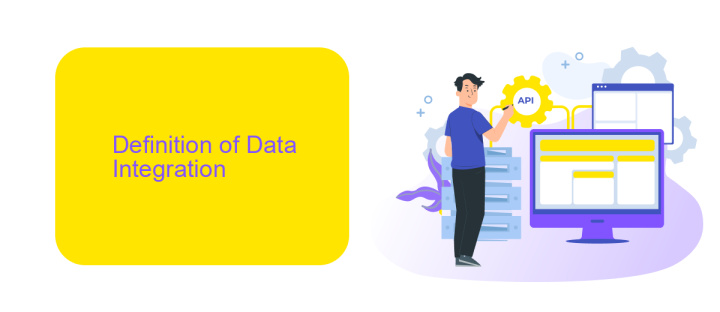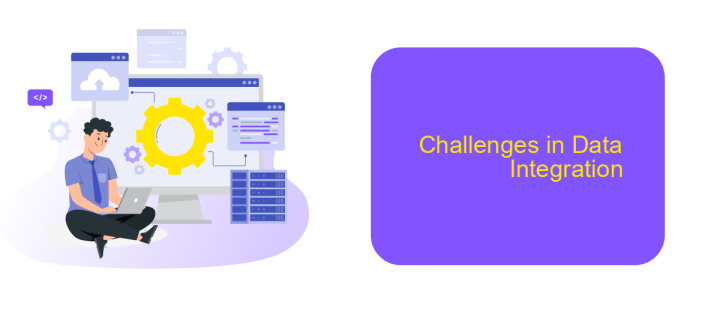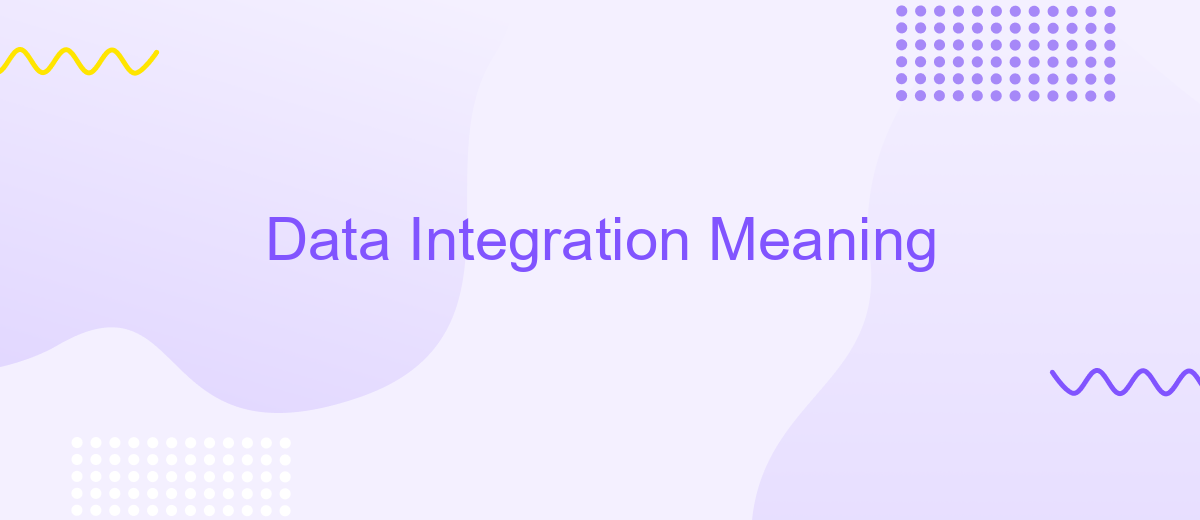Data Integration Meaning
Data integration is a crucial process in the modern data-driven world, enabling organizations to combine data from different sources into a unified view. This practice enhances decision-making, improves data quality, and supports business intelligence initiatives. In this article, we will explore the meaning of data integration, its key components, and its significance in achieving seamless data management.
Introduction
Data integration is a crucial process in today's data-driven world, enabling organizations to combine data from various sources into a unified view. This process enhances data accessibility, reliability, and consistency, providing a comprehensive perspective for better decision-making and strategic planning.
- Combining data from multiple sources
- Ensuring data consistency and accuracy
- Improving data accessibility
- Facilitating better decision-making
Tools like ApiX-Drive simplify the data integration process by automating the transfer of data between applications and services. This not only saves time but also reduces the risk of errors, ensuring that data remains consistent and up-to-date across all platforms. By leveraging such tools, businesses can streamline their operations and focus on deriving actionable insights from their integrated data.
Definition of Data Integration

Data integration is the process of combining data from different sources to provide a unified view. This practice is essential for organizations that rely on diverse data sets to make informed decisions. By integrating data, businesses can break down silos, ensuring that information flows seamlessly across various departments and systems. This unified approach not only enhances data accessibility but also improves data quality and consistency, enabling more accurate analysis and reporting.
There are several methods to achieve data integration, including manual coding, middleware solutions, and integration platforms as a service (iPaaS). One such iPaaS is ApiX-Drive, which simplifies the integration process by allowing users to connect multiple applications and automate data workflows without extensive technical expertise. By leveraging tools like ApiX-Drive, businesses can streamline their data integration efforts, reduce operational costs, and accelerate time-to-value. This makes it easier for organizations to harness the full potential of their data, driving better business outcomes.
Benefits of Data Integration

Data integration is an essential process that brings together data from different sources into a unified view, providing numerous advantages for businesses.
- Improved Decision-Making: Integrating data from various sources ensures that decision-makers have a comprehensive view, leading to more informed and effective decisions.
- Increased Efficiency: Automating data integration reduces manual data entry and errors, saving time and resources.
- Enhanced Data Quality: By consolidating data, inconsistencies and redundancies can be identified and corrected, improving overall data quality.
- Better Customer Insights: Unified data provides a complete picture of customer behavior, enabling personalized marketing and improved customer service.
- Scalability: With tools like ApiX-Drive, businesses can easily scale their data integration processes to handle growing data volumes and complexity.
Incorporating data integration into your business strategy can significantly enhance operational efficiency and provide a competitive edge. Services like ApiX-Drive simplify the integration process, allowing businesses to seamlessly connect various data sources and focus on leveraging insights for growth.
Challenges in Data Integration

Data integration is a complex process that involves combining data from different sources into a single, unified view. One of the main challenges in data integration is ensuring data quality. Inconsistent data formats, duplicate records, and missing values can lead to inaccurate analyses and poor decision-making.
Another significant challenge is dealing with the sheer volume of data. As organizations collect more data than ever before, integrating this data seamlessly becomes increasingly difficult. Scalability and performance issues can arise, especially when integrating data in real-time.
- Data Quality: Ensuring accuracy, consistency, and completeness of data.
- Volume: Managing and integrating large datasets efficiently.
- Real-time Integration: Handling data updates and synchronization in real-time.
- Security: Protecting sensitive data during integration processes.
- Compatibility: Ensuring different systems and formats can work together.
Services like ApiX-Drive can help mitigate some of these challenges by providing automated integration solutions. ApiX-Drive allows businesses to connect various applications and data sources, ensuring seamless data flow and reducing the risk of errors. By leveraging such tools, organizations can streamline their data integration processes and focus on deriving valuable insights from their data.


Conclusion
In conclusion, data integration is a crucial process that enables organizations to consolidate disparate data sources into a unified view, thereby enhancing decision-making and operational efficiency. By seamlessly merging data from various systems, businesses can gain deeper insights, streamline workflows, and foster a more collaborative environment. The importance of data integration cannot be overstated, as it lays the foundation for robust data analytics and informed strategic planning.
Moreover, leveraging tools and services like ApiX-Drive can significantly simplify the data integration process. ApiX-Drive offers a user-friendly platform that allows businesses to automate data flows between numerous applications without the need for extensive technical expertise. This not only saves time and resources but also ensures that data is consistently accurate and up-to-date. As organizations continue to grow and evolve, effective data integration will remain a key driver of innovation and competitive advantage.
FAQ
What is data integration?
Why is data integration important?
What are the common challenges in data integration?
How can businesses automate data integration processes?
What are the benefits of using a data integration platform?
Apix-Drive is a simple and efficient system connector that will help you automate routine tasks and optimize business processes. You can save time and money, direct these resources to more important purposes. Test ApiX-Drive and make sure that this tool will relieve your employees and after 5 minutes of settings your business will start working faster.

